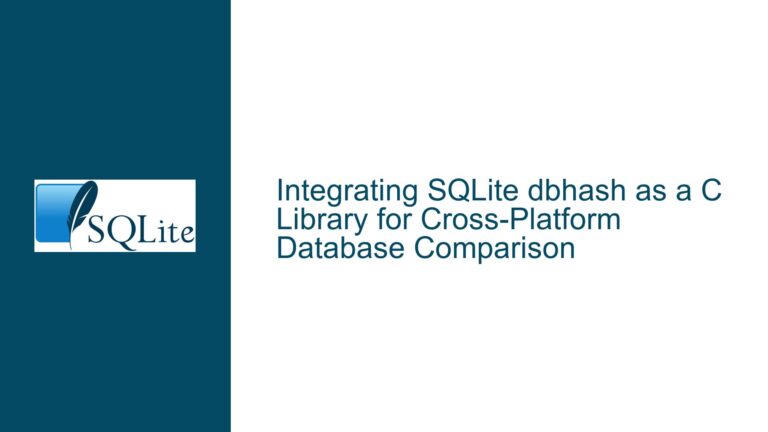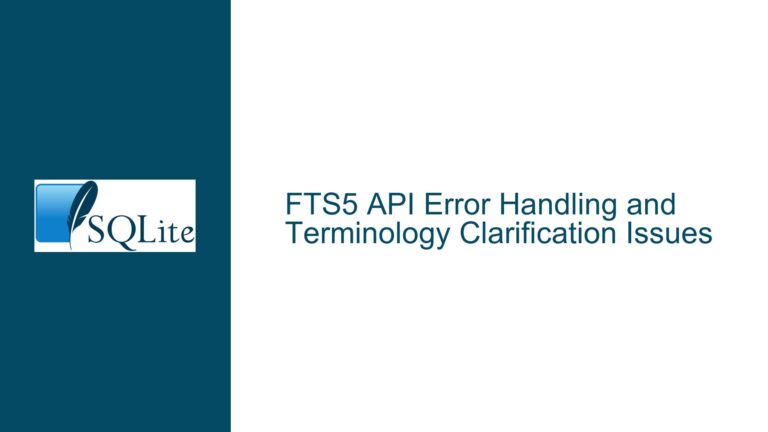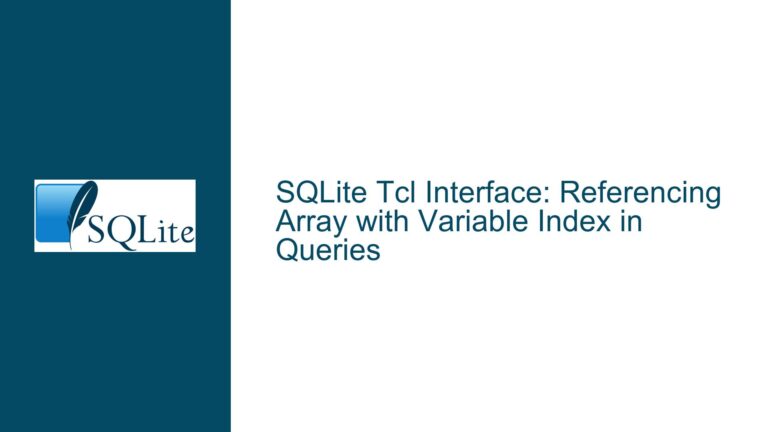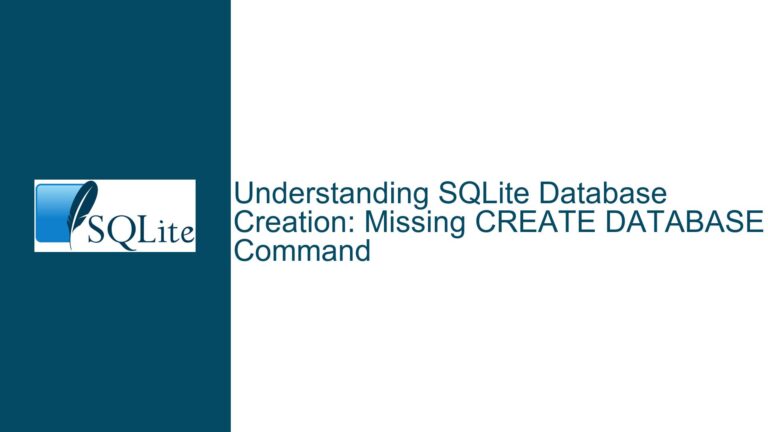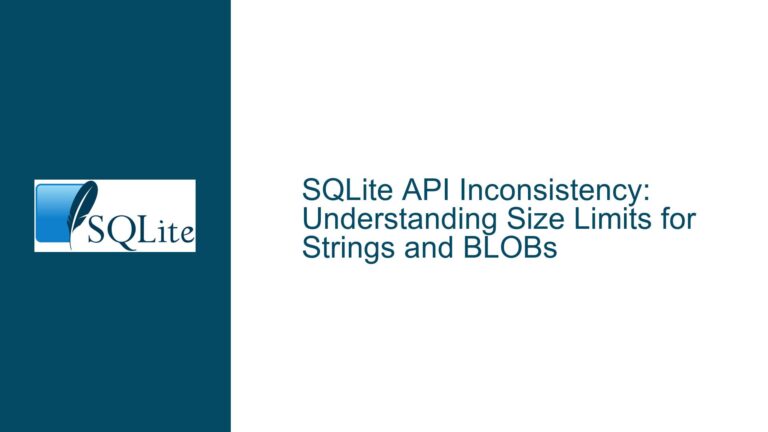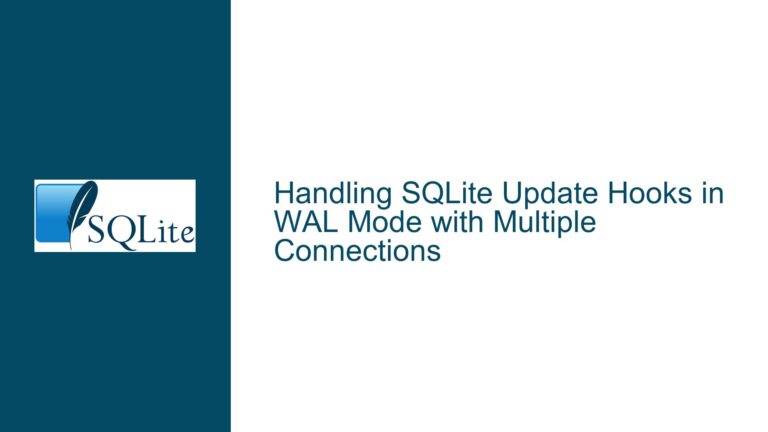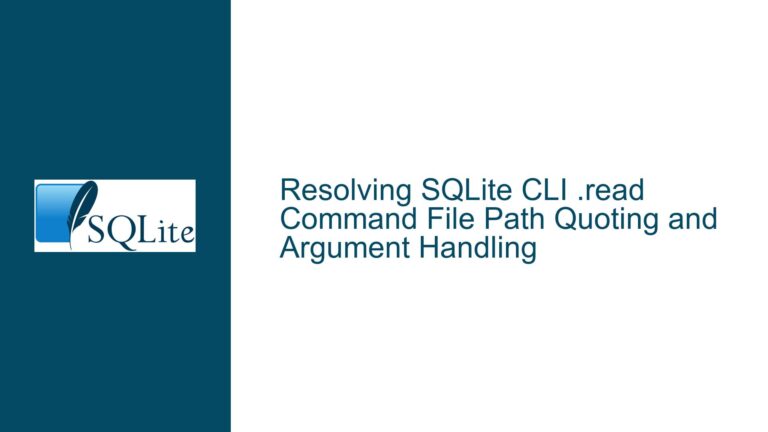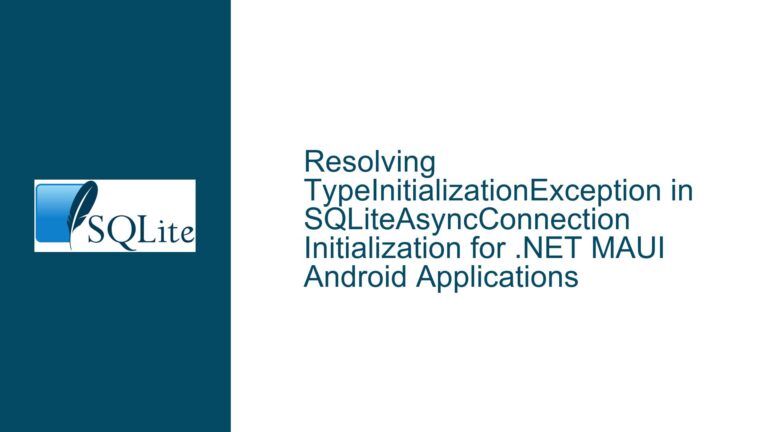Execution Timings and Order of sqlite3_update_hook vs. sqlite3_trace
Core Behavioral Differences Between sqlite3_update_hook and sqlite3_trace This guide explores the nuanced differences in execution timing and sequence between SQLite’s sqlite3_update_hook and sqlite3_trace APIs. These mechanisms are critical for monitoring database activity but operate under distinct conditions that developers must understand to avoid unexpected behavior in applications. Behavioral Characteristics of Update Hooks and Trace Functions…

